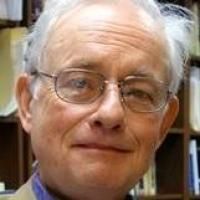The Unavoidable Intentionality of Affect: The History of Emotions and the Neurosciences of the Present Day
Date
2020-07-01
Authors
Journal Title
Journal ISSN
Volume Title
Repository Usage Stats
views
downloads
Citation Stats
Attention Stats
Abstract
© The Author(s) 2020. The “problem of emotions,” that is, that many of them are both meaningful and corporeal, has yet to be resolved. Western thinkers, from Augustine to Descartes to Zajonc, have handled this problem by employing various forms of mind–body dualism. Some psychologists and neuroscientists since the 1970s have avoided it by talking about cognitive and emotional “processing,” using a terminology borrowed from computer science that nullifies the meaningful or intentional character of both thought and emotion. Outside the Western-influenced contexts, emotion and thought are not seen as distinct kinds of things. Here a solution of sorts is proposed by thinking of emotional expression as a dynamic activity that declares and stirs emotions at the same time. As such, its dynamism may help historians to understand the dramatic changes and trends they investigate.
Type
Department
Description
Provenance
Subjects
Citation
Permalink
Published Version (Please cite this version)
Publication Info
Reddy, WM (2020). The Unavoidable Intentionality of Affect: The History of Emotions and the Neurosciences of the Present Day. Emotion Review, 12(3). pp. 168–178. 10.1177/1754073920930781 Retrieved from https://hdl.handle.net/10161/22364.
This is constructed from limited available data and may be imprecise. To cite this article, please review & use the official citation provided by the journal.
Collections
Scholars@Duke

William M. Reddy
Most recent book-- The Making of Romantic Love: Longing and Sexuality in Europe, South Asia, and Japan, 900-1200 CE (Chicago: University of Chicago Press, 2012). Awarded the Pinkney Prize for best book in French History, 2012, by the Society for French Historical Studies.
Personal web page: http://people.duke.edu/~wmr/
Current research projects concern:
(1) the relation between reason and emotion in the seventeenth century, (2) the comparative history of romantic love, (3) the history and cultural variability of emotions, (4) methodological interests including theories of culture, cognitive psychology, interpretive method.
Recent talks and panels:
With Barbara Rosenwein and Daniel Lord Smail, Round Table on the History of Emotions, Vanderbilt History Seminar, Vanderbilt University, Nashville, 19 September 2016
Keynote lecture: From Madurai to Rotterdam: Self and Difference in the Seventeenth Century," 8 April 2016, International Graduate Historical Studies Conference, Central Michigan University.
"Parler à la cour au XIIe siècle: Silences, ironies, vérité". Session d'été. Centre d'Etudes Supérieures de Civilisation Médiéval, Université de Poitiers. June 18, 2015 Edit
"From Zeal to Sweetness: The Emotional History of the Intellect in the Seventeenth Century". English Department, University of Maryland. March 25, 2015 Edit
"The History of Love". What Is Love? Romance Fiction in the Digital Age. Conference co-sponsored by the Popular Romance Project and the Center for the Book, Library of Congress. February 10, 2015 - February 11, 2015 Edit
"The Paradox of Modernity". Department of History, University at Buffalo. September 17, 2014 Edit
Plenary Session, "What is modernity? Recent debates and their implications for the seventeenth century". Annual Meeting. Society for the Study of French History. July 11, 2014 Edit
Keynote Lecture: "Is Pleasure an Emotion? Historicism and Anachronism in the History of Emotions,", International Medieval Congress, University of Leeds, July 5, 2013
"Reason and Emotion: Their Mutual Transformation in the Seventeenth Century,", Colloque International Ve Rencontre EMMA: Histoire intellectuelle des émotions de l'Antiquité à nos jours, May 23, 2013
"The Self as a Domain of Effort: The Convergence of Ethnographic, Historical, and Neuroscience Evidence", ARC Center for the History of Emotions, Methods Collaboratory, University of Melbourne, March 15, 2013
"Do Emotions Have a History? The Example of Romantic Love", ARC Center for the History of Emotions, University of Melbourne, March 14, 2013
"Cacher ses émotions: Ancien régime, Révolution, 19e siècle,", Séminaire ERCOMES-CIM 2012- 2013, Université de Sorbonne Nouvelle, Paris-3, January 16, 2013
Plenary address for conference entitled "Emotions, Health and Wellbeing," London, 10-12 September 2012, sponsored by The British Society for the Social History of Medicine, September 10, 2012
Keynote address for Colloque international -Colloque international - L’EMOTION: DE L’ESPACE PRIVE A L’ESPACE PUBLIC XIXe-XXIe SIECLES, Paris, 11-13 avril 2012. Cosponsors: - CHCSC (Université de Versailles-St-Quentin en Yvelines), HAR (Université de Paris-Ouest-Nanterre-La Défense) CARISM/Institut Français de Presse (Université Panthéon-Assas) Laboratoire Identités-Cultures-Territoires (Université Paris Diderot-Paris7) CRHEC (Université Paris-Est Créteil Val de Marne).
"Beyond 'Emotions'" Keynote Address for CHEP 2011 Istanbul "Emotions East and West," İstanbul, September 29- October 1, 2011.
"Learning to Feel: Emotions Beyond Nature versus Nurture,"Jerusalem, April 10-14, 2011; joint conference of The Center for the History of Emotions, Max Planck Institute for Human Development, Berlin, and The Van Leer Jerusalem Institute, in cooperation with The Hebrew University of Jerusalem, and Tel Aviv University.
"Science and the Emotions: Transnational Emotional Cultures in the United States and Western Europe after 1945," San Diego, February 24-26, 2011, IICAS, UC San Diego.
Unless otherwise indicated, scholarly articles published by Duke faculty members are made available here with a CC-BY-NC (Creative Commons Attribution Non-Commercial) license, as enabled by the Duke Open Access Policy. If you wish to use the materials in ways not already permitted under CC-BY-NC, please consult the copyright owner. Other materials are made available here through the author’s grant of a non-exclusive license to make their work openly accessible.
